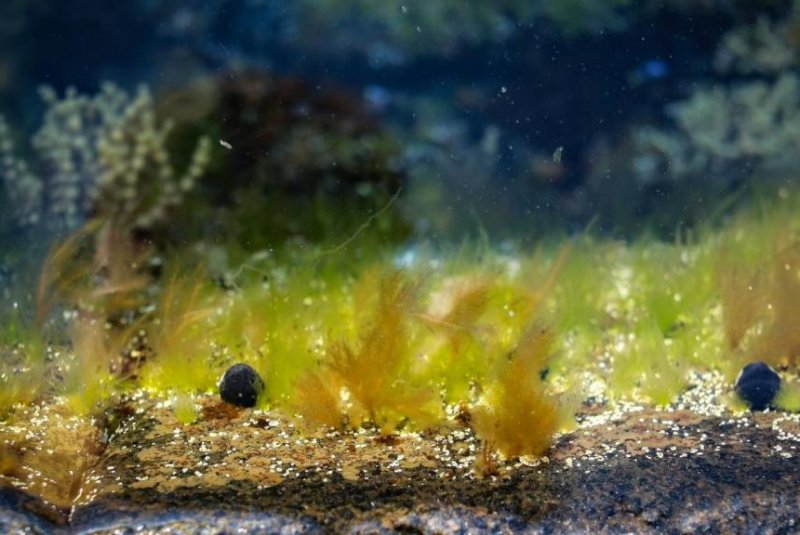Ocean chemistry can turn steroid molecules from common algae into steroid molecules that appear like those produced by sponges. Photo by Ilya Bobrovskiy/ANU
Nov. 23 (UPI) -- Fossils previously heralded as the earliest evidence of animal life have been revealed to be algae. The reinterpretation, announced Monday in the journal Nature Ecology and Evolution, will force scientists to reconsider early animal evolution.
"It brings the oldest evidence for animals nearly 100 million years closer to the present day," study co-author Lennart van Maldegem said in a news release.
"We were able to demonstrate that certain molecules from common algae can be altered by geological processes -- leading to molecules which are indistinguishable from those produced by sponge-like animals," said van Maldegem, a postdoctoral research fellow at the Australian National University.
The new research reverses the trend of fresh discoveries pushing the emergence of animal life further and further back on the evolutionary timeline.
For decades, scientists have struggled to pinpoint the origins of animal life, but recently, a series of discoveries suggested sponge-like animals began proliferating in Earth's oceans during the Ediacaran Period, as many 635 million years ago.
"Ten years ago, scientists discovered the molecular fossils of an animal steroid in rocks that were once at the bottom of an ancient sea in the Middle East," said study co-author Jochen Brocks.
"The big question was, how could these sponges have been so abundant, covering much of the seafloor across the world, but leave no body fossils?" said Brocks, an ANU professor.
It turns out, sponges weren't abundant -- they didn't exist yet.
Though it's true that sponges remain the only organisms that produce the steroids of note, the latest research suggests ocean chemistry can convert algae sterols into 'animal' sterols.
"These molecules can be generated in the lab when simulating geological time and temperatures, but we also showed such processes did happen in ancient rocks," said ANU researcher Ilya Bobrovskiy, who first discovered the steroid fossils 10 years ago.















